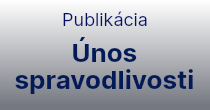Standing Orders of the Economic and Social Council of the Slovak Republic
Standing Orders
of the Economic and Social Council of the Slovak Republic
of the Economic and Social Council of the Slovak Republic
Article 1
Introductory Provisions
Introductory Provisions
-
The Economic and Social Council of the Slovak Republic (hereinafter referred to as „Council“) has approved the following Standing Orders of the Council by virtue of § 4, Paragraph 3, letter g) of Act No. 103/2007, Coll. on Tripartite Consultations at the National Level and on amending and supplementing certain Acts (Tripartite Act).
- The Standing Orders of the Council regulate membership of the Council and the method of proving membership, preparation and course of Council’s discussions, acceptance of the conclusions of discussions held in plenary session, method of discussion of the Presidium, execution of records by Council bodies and the composition and method of activities of the Council’s advisory bodies and its secretariat.
Article 2
Membership of the Council
Membership of the Council
Each Party proves its Council membership by presenting the decision of the competent body approving the member; written notices of changing membership must be delivered to the remaining parties and to the secretariat prior to the Council session at latest.
Article 3
Preparation of the Plenary Session
Preparation of the Plenary Session
- The Government (Article 3, Paragraph 1 and Article 5 of the Tripartite Act) and the social partners submit materials and standpoints to the plenary session in written and electronic forms.
-
The responsibility for timely submission of materials lies with the sponsor.
-
The sponsor shall deliver materials designed for the plenary session’s agenda to the Secretariat of the Council in five signed copies, at least ten calendar days before the date of the plenary session and simultaneously in an electronic form. The Secretariat shall, without undue delay, deliver the material in electronic form to the social partners. The Secretariat shall deliver the signed material without undue delay to the Government and to the social partners.
-
When designed for the agenda of an extraordinary plenary session, the sponsor shall deliver the material in written and electronic form to the Secretariat three calendar days before the date of the plenary session at latest; the Secretariat shall deliver the material to the social partners without undue delay.
-
The social partners shall assume their position to the materials and deliver it to the Secretariat two calendar days before the date of the plenary session at latest. The Secretariat shall deliver the position to the social partners without undue delay, usually on the same day.
-
The material, applicable to an issue on which an advisory body pursuant to Article 8 was established, shall be submitted together with the position of that advisory body.
- In matters bearing no delay the plenary session may, when agreed by the Government and by the social partners, discuss material submitted directly at the plenary session, or on the basis of verbal information.
Article 4
Plenary Session
Plenary Session
-
Sessions of the Council are held as required, usually in monthly intervals. The President of the Council may, in urgent cases, convene an extraordinary plenary session when decided accordingly by the Presidium. The plenary session is convened and chaired by the President of the Council, based on the approved plan of the Council’s activities. The President of the Council determines, in accordance with conclusions of the Presidium, the place and time of the session and notifies the proposed agenda of the plenary session. The President of the Council may delegate these tasks to the Vice-President of the Council, considering the equality of social partners at such delegation and alternately delegating both Vice-Presidents.
-
The plenary session is held in private.
-
The agenda of the plenary session is approved by the Council by proposal of the Presidium. Material may be retracted from the plenary session’s agenda only with the sponsor’s consent.
-
The Council’s plan of activities is constructed mainly on the basis of the plan of activities of the Government of the Slovak Republic, of the plan of legislative tasks of the Government of the Slovak Republic, and of proposals of the social partners.
-
Participation of a Council member by proxy in the plenary session is inadmissible. Absence of a Council member at the plenary session shall be notified by the Government or by the respective social partner to the Secretariat.
-
Approval of the agenda and of procedural proposals requires consent of the Government and of the social partners, unless provided otherwise in these Standing Orders.
-
The plenary session has the capacity to discuss and adopt conclusions at its session in the presence of at least four Council members who are Government members, at least four Council members who are employers’ representatives and at least four Council members who are employees’ representatives.
-
Members of the Council may invite to the plenary session five experts at most on the individual points of the agenda for each of the Parties; experts may be assigned the floor by the President of the Council by request of a Council member.
-
As a rule, the sponsor of materials on behalf of the Government is the corresponding minister (or in his/her absence the state secretary) or the head of another central state administration body (or in his/her absence the deputy head of another central state administration body). The sponsor of materials on behalf of a social partner is the corresponding Council member.
-
Standpoint to material submitted by the corresponding minister or state secretary is presented by the delegated representative of the social partner.
-
The President of the Council shall, by request of one of social partners suspend, for the duration determined by the President, discussion in the plenary session for purposes of mutual explanation of standpoints.
- With consent of the Presidium or of the plenary session, other persons may also be invited to Council’s discussion.
Article 5
Conclusions of the Plenary Session’s Discussion
Conclusions of the Plenary Session’s Discussion
-
The conclusions of discussion of the plenary session comprise agreements, standpoints and recommendations included in the material submitted to the respective body for continuing discussion of, or decision on the issue.
-
The President of the Council explicitly and accurately formulates the conclusions of discussion in the minutes of the plenary session.
-
In the case of compliant standpoints on the submitted material the conclusion of the plenary session is a joint standpoint.
-
In the case of conflicting standpoints on the submitted material the conclusions of discussion of the plenary session comprise the standpoint of the Government and the respective standpoint of each social partner; in such case the conclusions shall be supplemented with the standpoints of the social partners. In the case of conflicting standpoint of one of the social partners on the submitted material, the material may be repeatedly negotiated.
-
When one of the social partners changes his standpoint in the course of Council’s discussion, all partners shall, by endorsement, confirm the changed standpoint directly within the discussion.
-
Representatives of the Government and of the social partners provide information to the general public on the conclusions of the plenary session through the media, published at a joint press conference held at the time agreed by the Council and within discussion of the plenary session.
- The Secretariat of the Council publishes the record of plenary sessions on the Internet website of the Governmental Office of the Slovak Republic.
Article 6
The Presidium
The Presidium
-
Discussions of the Presidium are attended by members of the Presidium, designed in accordance with § 8, Paragraph 1, letters a) through f) of the Tripartite Act. The Secretary of the Council and invited advisors of the Government and of the social partners also participate in the meetings. Unless the Presidium agrees otherwise, maximally two advisors may be invited on behalf of the Government and of each of the social partners.
-
Sessions of the Presidium are held in accordance with its plan of discussions, usually ten days before the date of a plenary session.
-
Further Council members may be invited to the individual points of the agenda.
-
The Secretariat of Council shall deliver to members of the Presidium the preliminarily proposed plenary session’s agenda three days before the discussion of the Presidium at latest.
-
Discussion of the Presidium is convened and chaired by the President of the Council, or by his authorised Vice-President of the Council. The President considers the equality of social partners at such authorization, and alternately authorizes both Vice-Presidents. Conclusions of the Presidium are accepted with consent of representatives of the Government and of the social partners.
-
The President decides, when requested by any of the social partners, about convocation of an extraordinary session of the Presidium within three days from the corresponding request.
-
When proposed by the President, the Presidium may, in extraordinary cases, accept conclusions per rollam in a written or electronic form.
- The provisions of Article 5 appropriately apply to the acceptance of conclusions of the Presidium discussion.
Article 7
Record of the Plenary Session and Presidium
Record of the Plenary Session and Presidium
-
The Secretariat of the Council executes written record of the plenary session and of the Presidium within two days at most from the date of the plenary session. The record comprises mainly the date and place of the plenary session, the agenda, name of the person chairing over the plenary session and the names of participants, standpoints of the social partners and conclusions to negotiated materials.
-
Conflicting standpoints of the Government and of the social partners shall be stated in the record of Council discussion. The standpoints of the Government and of the social partners are annexed to the record.
-
The record of the plenary session is signed by the President of the Council and by Vice-Presidents of the Council. In absence of the President the record shall be signed by the Government representative appointed by the Government and designed by the President. In absence of any of the Vice-Presidents the record shall be signed by a member of the Presidium, representing the social partner whose Vice.-President is absent.
-
The Secretariat of the Council delivers to Council members the records of plenary session within seven days from the date of the plenary session.
- The provisions of points 1 through 4 are appropriately used for the execution of records of Presidium sessions.
Article 8
Advisory Bodies
Advisory Bodies
-
The Council may establish its advisory bodies on the individual fields of its activities, comprising experts designated by representatives of the Government and of the social partners. The Council’s decision to establish an advisory body determines mainly:
a) Title of the advisory body,
b) Field of activities,
c) Duration of the establishment,
d) Composition of members including the Chairman and two Vice-Chairmen,
e) Other rules required for the execution of its activities.
-
Discussions of the advisory body are attended by its members and by the Secretary of the Council. Further persons may be invited on the individual points of the agenda.
-
Sessions of the advisory body are held as required, or in accordance with its schedule of discussions of this body.
-
The Secretariat delivers the proposed agenda of discussion and any necessary documentation to members of the advisory body usually at least three days before the session.
- Discussion of the advisory body is convened and chaired over by its Chairman, or in his absent by his authorised Vice-Chairman. Standpoint of the advisory body is accepted with consent of experts for the Government and for the social partners.
Article 9
Secretariat of the Council
Secretariat of the Council
The Secretariat of the Council secures the Council’s activities and activities of Presidium from material, organisational and administrative aspects. The Secretariat is managed by the Secretary who is appointed and recalled by the President of the Council by proposal of the Presidium.
Article 10
Final Provisions
Final Provisions
-
The Standing Orders of the Council shall enter into force and effect on the date of their approval by the Council.
- Amendments and supplements of the Standing Orders of the Council are, by proposal of the Government or one of social partners, subject to approval by the plenary session.
Bratislava, 5 April 2007
Translation:
Ministry of Labour, Social Affairs and Family of the Slovak Republic - Department for Affairs of European Union and International-Law Relations,
Bratislava
23 April 2007






















Rýchly prístup
Užitočné odkazy
Iné stránky
- Centrálny register zmlúv
- Centrálny register projektov
- Centrálny register splatných pohľadávok štátu
- Register výročných správ a verejných odpočtov rozpočtových a príspevkových organizácií
- Register ponúkaného majetku štátu
- NASES
- Národný úrad pre OLAF
- Boj proti korupcii
- Partnerská dohoda
- Inštitút pre stratégie a analýzy (ISA)
- Sekcia štátnej služby a verejnej služby


